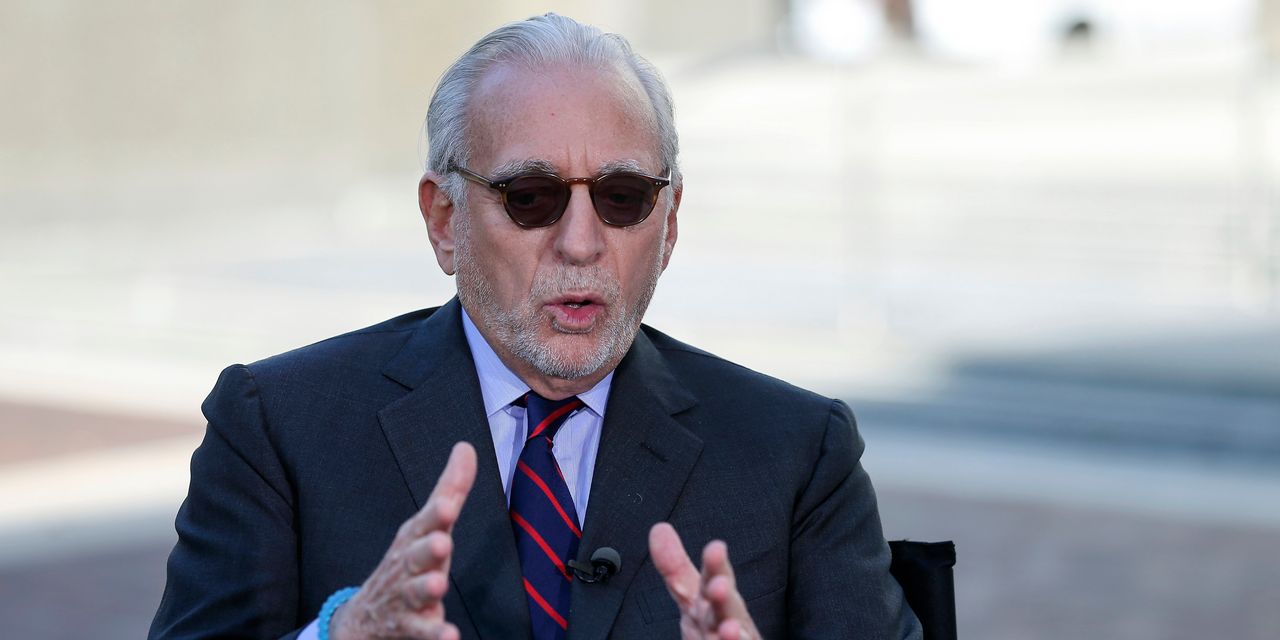
LONDON—Trian Fund Management LP, the activist hedge fund run by Nelson Peltz, has acquired a stake in Unilever UL -0.18% PLC, according to people familiar with the matter, adding pressure to the packaged food and consumer goods giant in the wake of its failed $68-billion bid for GlaxoSmithKline GSK 0.49% PLC’s consumer-health business.
The size of the stake couldn’t be learned. Trian started buying Unilever shares well before its bids for the GSK unit surfaced earlier this month, one of the people said.
Unilever’s shares have been under pressure in recent months as it has struggled to boost volumes. Analysts say it has underperformed some rivals during the Covid-19 pandemic in areas such as hygiene and packaged food and hasn’t launched any blockbuster innovations in some time.
The company faced strong opposition from investors to its plan to buy the GSK healthcare business, with analysts pointing to its mixed record on several other big acquisitions. Critics said the London-based company would be overpaying for the GSK business, and that it should focus on turning around its existing categories rather than taking on new ones in which it had little experience.
Trian’s stake in Unilever was earlier reported by the Financial Times.
Unilever Chief Executive Alan Jope late last year kicked off the effort to buy the consumer health business that GSK has said it is preparing to spin off. Unilever said the deal would be part of an effort to push further into health, beauty and hygiene products, at the expense of slower-growing food brands. The bid and the pivot to health amounted to Unilever’s biggest strategic shift in years. It said at the time that any big acquisitions would likely be accompanied by significant divestitures.
But the effort faltered amid intense opposition from Unilever shareholders, while GSK held out for a better price. Mr. Jope last week said he wouldn’t raise Unilever’s last offer, essentially putting the deal on ice. Unilever said it was committed to improving the performance of its existing brands, including through a coming reorganization, and rotating its portfolio into higher-growth categories.
Some analysts and investors say Mr. Jope’s credibility has taken a hit from the episode.
Trian’s stake comes a few years after the New York firm bought into Unilever rival Procter & Gamble Co. PG 0.38% Mr. Peltz in 2017 narrowly won a P&> board seat, in what was at the time the most expensive proxy fight in U.S. history.
Mr. Peltz previously has served on the board of other consumer goods companies, including Oreos maker Mondelez International Inc. MDLZ 0.89% and Heinz. In some past activist campaigns, he has sought to break up companies, though that wasn’t a goal in his P&> involvement.
Analysts and investors have called for Unilever to jump-start its own sales growth in a way similar to P&>’s turnaround, including by divesting slower-growing brands and turning around its core business.
P&> at the time of Mr. Peltz’s involvement was struggling with intense competition, rising materials costs and its own bureaucracy. The Cincinnati-based company has since succeeded in upgrading consumers to premium versions of its products. It also shed mass-market beauty brands and led the industry in a move to raise prices to offset commodity costs and fatten profit margins.
More recently, P&> has benefited from big sales gains made through the pandemic, including through higher prices. Mr. Peltz late last year left P&>’s board.
Unilever’s misjudgment over investor opposition to the GSK bid has drawn parallels with its miscalculation in 2018 of shareholder support for the Anglo-Dutch giant’s bid to consolidate its headquarters in Rotterdam. The company, which had operated joint head offices there and in London, made a U-turn on its decision after fierce opposition. Shortly after, then-CEO Paul Polman stepped down, turning the reins over to Mr. Jope.
Mr. Jope, a Scotsman, successfully pushed through a separate corporate restructuring that consolidated the company’s headquarters in London, instead. Part of the rationale for the consolidation was that it would make the company more nimble in deal-making. Previously, Unilever executives say, the company’s dual-structure made its stock too cumbersome to be attractive to the owners of big businesses it was interested in pursuing.
The GSK offer—a mixture of stock and cash—was Mr. Jope’s first attempt at a major deal and would have catapulted Unilever into becoming the world’s largest vitamins owner, with brands like Centrum and Emergen-C. It would have added a raft of other drugstore staples, including Aquafresh toothpaste, Advil painkillers, indigestion remedy Tums and Flonase allergy relief.
Analysts criticized the deal not just for its $68 billion price tag but also because Unilever has little experience in consumer healthcare products. Such offerings can attract stricter regulation and can’t be quickly rolled out across new markets the way less-scrutinized consumer goods can.
Unilever’s shares in recent months have traded not far above their level in 2017, when the company became the target of an ultimately unsuccessful $143 billion hostile bid from Kraft Heinz Co. KHC -0.16%
Critics partly blame the company’s food unit, which houses brands like Ben & Jerry’s ice cream and Hellmann’s mayonnaise. Unilever for years has faced calls to spin off or sell its entire food business. The company in recent years has sold off big chunks of it. In 2018, it sold its spreads unit for about $8 billion, and in November, it struck a roughly $5 billion deal to sell the bulk of its tea business.
Mr. Jope, who previously worked as Unilever’s head of personal care before becoming CEO in 2019, has said consumers’ already growing interest in health and wellness has been accelerated by Covid-19 and has outlined his interest in pushing deeper into the category.
Jefferies analyst Martin Deboo said he thinks Trian will push Unilever to sell food brands more quickly or to sell or spin off the unit entirely. “The force and temperature of debate around Unilever now looks set to rise by several notches, with Trian likely to find a sympathetic audience,” among Unilever shareholders, said Mr. Deboo, adding that the episode would increase pressure on Mr. Jope.
Other major consumer products companies like P&>, Reckitt Benckiser Group PLC and Colgate-Palmolive Co. CL 1.00% are mainly focused on businesses like personal care, cleaning and consumer health. Food giant Nestle SA NSRGY 0.46% —in which activist investor Dan Loeb has a stake through his hedge fund Third Point LLC—has exposure to categories viewed as more promising like coffee and pet food.
Write to Cara Lombardo at [email protected], Saabira Chaudhuri at [email protected] and Costas Paris at [email protected]
Copyright ©2022 Dow Jones & Company, Inc. All Rights Reserved. 87990cbe856818d5eddac44c7b1cdeb8








